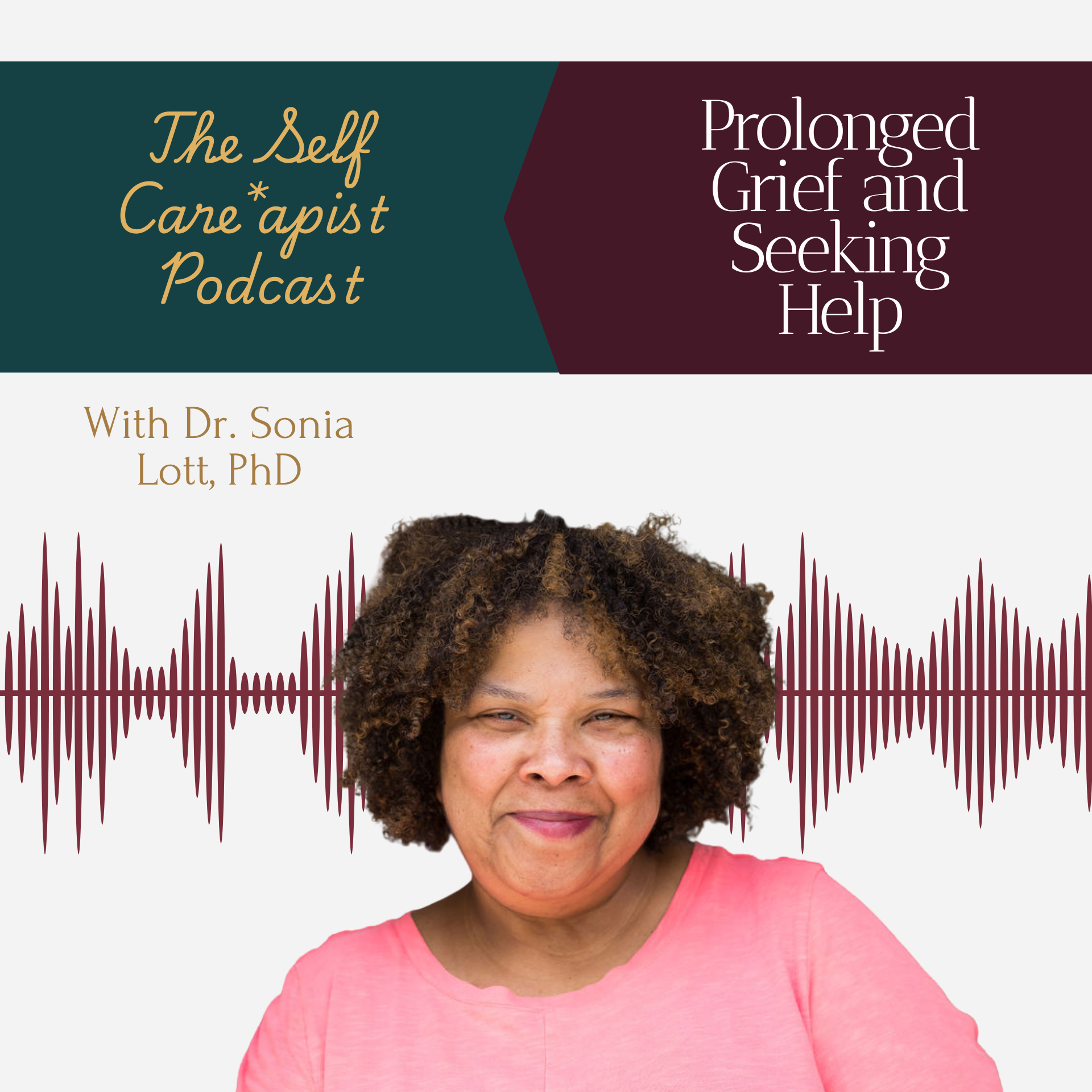Grief isn’t linear, and for some, it doesn’t lessen with time. In this episode of The Self Careapist, I sit down with Dr. Sonya Lott, a psychologist and grief expert, to talk about Prolonged Grief Disorder (PGD) and what it means to support clients who are stuck in deep, disruptive mourning.
As therapists working with trauma, anxiety, and high-performing adults, we need to understand when grief turns from painful to paralyzing — and how evidence-based therapy can help.
Understanding When Grief Gets Stuck
PGD is more than grief that lingers. It involves persistent, impairing symptoms like intense longing, emotional numbness, and functional disruption often lasting well beyond 12 months. Dr. Lott walks us through the origins of PGD, its diagnostic criteria, and why accurate identification matters.
She reminds us: diagnosing prolonged grief isn’t intended to pathologize pain — it’s intended to honor suffering with the right tools.
Prolonged Grief Therapy (PGT): What Works and Why
Prolonged Grief Therapy isn’t just a modified CBT protocol. It’s an integrative, trauma-informed treatment grounded in:
- Attachment theory
- Motivational interviewing
- Narrative work
- Grief-focused exposure therapy
Dr. Lott shares how this 16–25 session model helps clients restore identity, reconnect with meaning, and learn to live in a world without the person they lost. It’s sacred, hard work — but it’s also effective.
What Therapists Need to Know
Many therapists confuse PGD with depression or PTSD, and clients often bounce between providers without answers. Dr. Lott urges clinicians to become grief-literate and trauma-informed around loss.
She recommends training through:
- The Center for Prolonged Grief at Columbia University
- Caring Connections at University of Utah which offers free group treatment training
Both offer accessible, evidence-based tools that clinicians can use immediately.
Grief in a Post-Pandemic, Politicized World
We also zoom out. Dr. Lott shares her concern about the collective grief crisis emerging from:
- Pandemic-related deaths
- Disenfranchised losses
- Medical policy shifts that create barriers to care
- Worsening maternal health outcomes
- Socioeconomic grief and systemic inequity
Therapists must prepare to address not only individual grief but also communal and cultural layers of trauma and mourning.
Saying Goodbye to the Five Stages
Still using Kübler-Ross? This episode challenges that. Dr. Lott unpacks why the five stages model has been repeatedly disproven, and why it may unintentionally shame clients who don’t grieve “by the book.” Grief isn’t a checklist. And our clinical models need to catch up.
Supporting Grievers Beyond the Therapy Room
Dr. Lott also offers insight into how clients’ support systems can better show up by being present, checking in creatively, and avoiding “toxic positivity” like “they’re in a better place.” This is vital for clinicians working with grief-adjacent relational repair.
Listen Now
If you work with trauma, anxiety, loss, or high-performing professionals who suddenly feel undone, this conversation will help you name what’s happening and learn how to help.
Listen to the episode on Apple
Explore training at the Center for Prolonged Grief
Learn more about EMDR for anxiety and trauma

+ show Comments
- Hide Comments
add a comment